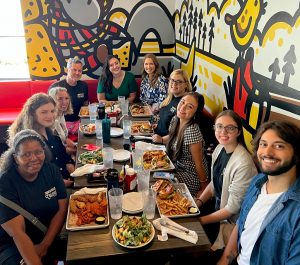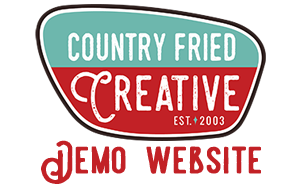by Joe Domaleski | Dec 18, 2023 | Blog, Business, Columnists, Community, Front Page, News Center, Opinion
Many of you reading this article barely made it through the year. You’re probably already seeing a lot of people posting highlight reels of the year on social media. Perhaps you’re getting another “brag letter” from a friend or family member in your Christmas card. For some, it may have been their best year ever. That’s awesome. For many others, this may have not have been their best year. If that describes you, don’t let that take away from your joy and sense of accomplishment. As they say, “comparison is the thief of joy.” You made it through a tough year and I want to acknowledge your resilience.
“Do not judge me by my success, judge me by how many times I fell down and got back up again.” – Nelson Mandela
Earlier this year, my business celebrated its 20th anniversary, an impressive milestone to be sure. Yet, it wasn’t our best year ever. For the first time in many years, our business did not grow in terms of employees or revenue. Things started to slide a little at the end of 2022. We didn’t lose money, but it wasn’t a super growth year like it’s been over the previous four years. Inflation and economic uncertainty have impacted many of our clients, some of whom are scaling back. When that happens, it impacts us. I don’t mind sharing that with you. Many people feel the need to share a false image of perpetual “I’m always winning” success online. I think it’s important to be candid here. If you’ve struggled this year, you’re not alone.
Being in business for twenty years has given me perspective. Over the course of my business career, it’s been my honor to receive many personal and organizational awards – several of which have been chronicled in this newspaper. I’m now at that stage of my life and career when the spotlight is not on me, it’s on others – mostly younger people. One of the benefits of being a previous award winner is that I get to sit on many of the selection committees that pick award recipients in our local community. We have some really impressive people in our community, fine businesses, and great non-profits. Yet, we also have many people doing great things that we never hear about – people who aren’t in the spotlight but are courageous and brave.
On a personal level, the same holds true. When I was younger, I was a fairly competitive age-group runner. Now that I’m older and dealing with arthritis, I’m not really running anymore. Although I stay fit, my best athletic days are behind me, and I live vicariously through others’ marathons, triathlons, and other athletic accomplishments. I have gray hair, wrinkles, and have a hard time staying awake past 9:30pm at night. Not only with athletics and health, but this is the same with life achievements. It’s fun to see my (now adult) children and many of the children of my friends graduate college, get married, have babies, and achieve other life milestones. Yet, for every winner and accomplishment, there are hundreds of others who aren’t publicly recognized. Their achievement is just making it – paying down student debt, handling setbacks, or just paying the bills. Sometimes I think it’s harder to “just get by” than it is to win something or achieve some life milestone. Just surviving is underrated.
Make no mistake, competition is part of life. I don’t advocate “dumbing down” standards so that everyone is a winner. But what I do know is that life has its ups and downs. Some winners don’t have to work as hard as those who are just making ends meet. Winning doesn’t last forever, but neither does losing. Our society likes to celebrate champions, money, and “famous people.” But there’s more to life than money and fame. Personally, I’m more inspired by people who overcome adversity and display resilience.
A friend of mine posted this recently online:
“I don’t think anyone really understands how tiring it is to act okay and always be the ‘strong’ one when in reality you’re close to the edge.” – Anonymous
I see you out there, survivors! You’re not alone. Here are some thoughts about what helps me get through tough times:

This is more realistic social media picture than most. #gowiththeflow Photo/TikTok
Finding my tribe – Both personally and professionally, the camaraderie of friends and family has been a lifeline. My tribe gives me perspective, a much-needed break from the “front lines,” and allows me to be who I want to be in a non-competitive way.
Celebrating small wins – This year, success was measured in modest terms. Sometimes, it was as simple as getting a new client, helping an organization meet their fundraising goal, helping a neighbor, or just waking up early to exercise. These small wins were important steps towards larger goals.
Adapting to change – If there’s one thing this year has taught me, it’s the importance of being adaptable. Artificial intelligence (AI), inflation, changing customer sentiment, and other life complexities have made even the simple stuff seem hard at times. Being agile and not stuck in the past is important. Long-time relationships change and evolve over time.
Having a positive attitude – I’ve been around long enough to know that nothing lasts forever and that many things are simply beyond my control. Truth is, you can do everything right and still not get the outcome you want. A positive attitude creates hope and encouragement for me, my team, my customers, and my family.
Being resilient – Resilience is the quiet strength that kept me going when times got tough, easy things became hard, and plans didn’t go the way I thought. Resilience (and perhaps some stubbornness) is what made me adapt, pivot, and find new ways to run the business and participate in the local community.
As we close this year and prepare for the next, I want to congratulate those of you who just barely made it. I see you and appreciate you. Remember, every challenge overcome is a testament to your strength and determination. Whether you’ve achieved great milestones or simply managed to get through each day, your journey is worthy of celebration. Here’s to you, who persisted despite the odds, who found joy in the small victories, and who continue to do the right thing, because it is the right thing to do.
To you, who made it through – congratulations! You’re a winner in my book.
[Joe Domaleski, a Fayette County resident for 25 years, is the owner of Country Fried Creative – an award-winning digital marketing agency located in Peachtree City. His company was the Fayette Chamber’s 2021 Small Business of the Year. Joe is a husband, father of three grown children, and proud Army veteran. He has an MBA from Georgia State University and enjoys sharing his perspectives drawing from thirty years of business leadership experience. Sign up for the Country Fried Creative newsletter to get marketing and business articles directly in your inbox. ]
by Joe Domaleski | Dec 11, 2023 | Blog, Business, Columnists, Community, Front Page, News Center, Opinion
As the year draws to a close, I find myself reflecting on this past year while contemplating the new year. Needless to say, a lot has happened this past year, personally and professionally. I’m willing to bet you’ve had a year of ups and downs as well. Life is never a flat road or a straight path. None of us has a crystal ball into the future, and yet, it’s natural to make life adjustments based on how things have been going and where you think things are heading.
Making easy decisions or adjustments are, by definition, “easy to make.” Making an easy decision doesn’t mean it’s easy to stick with that decision. But making the decision itself is usually not difficult. It’s human nature to gravitate towards pleasant things and avoid difficult things. Since these types of decisions are “no-brainers,” let’s consider difficult decisions.
“In any moment of decision, the best thing you can do is the right thing, the next best thing is the wrong thing, and the worst thing you can do is nothing.”
– President theodore roosevelt
Every year around this time, I spend some time in introspection. Invariably, I find myself contemplating the challenging decisions I’ve faced as a small business owner. The decision to start my business over 20 years ago was a tough decision, and I’ve been making tough decisions ever since. Besides the decision to launch the business, some of the other tough decisions I’ve made over the years include:
- Hiring people – since we’re a small business, a lot of time and consideration goes into each and every hire we make. We’ve worked really hard to hire local people and create local jobs, which is not the norm in our industry with cheap overseas and online contracted service providers.
- Parting ways with people – sometimes it “just doesn’t work out.” I like to think that all situations are fixable, but sometimes that means ending things for the betterment of both parties.
- Deciding what types of services to offer – do we play to our strengths or stretch and explore new opportunities? Our industry of digital marketing, like many, is constantly changing. Digital marketing didn’t even exist when I was in college, yet here I am doing it. What’s the future for our industry?
- Investing in new systems and technology – we aim to have the best tools for our company, but those investments are rarely quick to implement or cheap in price.
- How long to wait for a result – when we make a change or investment, it’s easy to get impatient about results. Knowing when to double down and stick with it or cut any losses is tough. I generally adhere to a 90-day rule.
- Taking on and keeping clients – we’re not a fit for everyone, nor is every client a good match for us. It’s not always easy to know how well something is going to work at the beginning. If things get bumpy, do we keep the client and try to work it out?
- Setting prices – that’s always a tough one. We are well aware of national and local “market rates” for our services. How do we handle the client who needs our help but can’t afford it? Equally as hard is the problem of not charging enough for the client who is “needy”?

The struggle is real. The author contemplates making a tough decision. Photo/Joe Domaleski
Here’s how I handle tough decision-making, and perhaps sharing this will help you as you consider tough decisions.
Embrace the Uncertainty – One of the first things to acknowledge is that uncertainty is a natural part of decision-making. It’s rare to have all the information you need to feel 100% confident. Accepting that some level of uncertainty is inevitable can be liberating and can help you move forward.
Gather Information – Start by gathering as much relevant information as possible. In business, this could mean analyzing market trends, financial reports, or customer feedback. In personal decisions, it might involve researching, seeking expert opinions, or reflecting on past experiences. Remember, information is power, but also know when you have enough to make a decision.
Consider Different Perspectives – It’s easy to get tunnel vision, especially when you’re deeply involved in the situation. Try to view the problem from different angles. Discussing the issue with trusted colleagues, mentors, or friends can provide new insights and reveal blind spots in your thinking.
Evaluate the Risks and Rewards – Every decision has its risks and rewards. Weighing these against each other is crucial. What are the potential benefits of each option? What are the consequences? How does each scenario align with your long-term goals, both professionally and personally?
Listen to Your Intuition – While logic and data are essential, don’t underestimate the power of your intuition. Sometimes, your gut feeling can guide you towards a decision that makes the most sense for you personally or for your business, even if it’s not immediately apparent on paper.
Prepare for the Fallout – Understand that every decision, especially the tough ones, will have consequences. Prepare yourself for them. If it’s a business decision, have a contingency plan. If it’s personal, ensure you have a support system in place.
Commit and Reflect – Once you’ve made your decision, commit to it fully. Second-guessing yourself can lead to unnecessary stress and confusion. Reflect on the outcomes of your decision, learn from them, and use these insights for future decisions.
Give Yourself Grace – Finally, and most importantly, remember that it’s okay to make mistakes. No one makes the right decision every time. What’s important is that you learn from your experiences and grow both as a business owner and an individual.
As we wrap up the year, it’s important to remember that our journey is shaped by the decisions we make, both easy and challenging. The experiences of the past, with their mix of triumphs and trials, serve as important lessons as we navigate the future. Whether in our personal lives or in our business lives, each decision carves out a path for new opportunities and growth. I hope that the insights shared here not only resonate with your own experiences but also inspire confidence in your decision-making. Whatever decisions you may be struggling with, I hope you give yourself the strength to follow through and the grace to accept what life has to offer. Here’s to a year ahead filled with thoughtful choices, continued learning, and boundless possibilities.
[Joe Domaleski, a Fayette County resident for 25 years, is the owner of Country Fried Creative – an award-winning digital marketing agency located in Peachtree City. His company was the Fayette Chamber’s 2021 Small Business of the Year. Joe is a husband, father of three grown children, and proud Army veteran. He has an MBA from Georgia State University and enjoys sharing his perspectives drawing from thirty years of business leadership experience. Sign up for the Country Fried Creative newsletter to get marketing and business articles directly in your inbox. ]
by Joe Domaleski | Dec 4, 2023 | Blog, Business, Columnists, Community, Front Page, News Center, Opinion
When I was younger, I got most of my information from traditional media sources – TV, radio, newspapers, magazines, books, and word of mouth. Once the gatekeepers of knowledge and news, traditional media have had to adapt and compete in a realm where digital media dominates. This shift has dramatically broadened access to information, democratizing access to knowledge in unprecedented ways. Yet, it has also introduced challenges in how information is filtered and shared, often making the digital space less democratic than it appears.
Make no mistake, I love the Internet and have been using it personally and professionally throughout my entire career. In the late 90s, I decided to learn web development, and that love for online communications directly led to the founding of my company 20 years ago. Yet, if I’m honest, the vast proliferation of information has necessitated necessary, but not necessarily ‘fair,’ ways of ensuring that information reaches people. This is an article I feel uniquely qualified to write, since it’s my business to figure out how to help organizations ‘get noticed’ online. It’s a complex topic. Let’s make a distinction between two key terms.
Freedom of speech is a fundamental right in many societies, allowing individuals to express their ideas and opinions without censorship or restraint. It’s a cornerstone of democracy, fostering a marketplace of diverse views. For the most part, in our country, there’s a wide latitude in what one can say, post, or publish.
Freedom of reach is a relatively new concept, particularly relevant in the digital era. It refers to the extent to which content is disseminated across digital platforms. In other words, while you can say (almost) anything you want, how far your message travels online is a different matter. Traditionally, reach was directly controlled by publishers of content (human beings). Nowadays, reach is most dictated by algorithms (computers).
The Role of Algorithms
Algorithms, the invisible architects of the digital world, play a pivotal role in dictating what we see and read online. These complex formulas are used to process data and generate specific outcomes. They determine which content appears in our social media feeds, search engine results, and even news recommendations. The primary goal of these algorithms is to maximize user engagement, which can lead to a skewed representation of information – highlighting sensational, divisive, or extreme content over more moderate, nuanced perspectives.
Here’s how algorithms control what’s seen online:
- Personalization: Algorithms analyze user behavior — such as clicks, likes, shares, search history, and time spent on content — to learn preferences. This data helps platforms present content that aligns with individual tastes or interests.
- Search Results: Search engines use algorithms to determine the relevance and ranking of web pages in search results. Factors like keywords, site authority, and user engagement influence these rankings.
- Social Media Feeds: Platforms like Facebook, Twitter, and Instagram use algorithms to curate and prioritize posts in a user’s feed. They consider factors such as the user’s interactions, the popularity of a post, and the recency of content.
- Content Moderation: Algorithms are used to monitor and filter out inappropriate content, such as hate speech or graphic violence, based on predefined criteria.
- Advertising and Recommendations: Algorithms determine which advertisements and recommendations are most relevant to a user, based on their online behavior and demographic information.
- Trending Topics: Algorithms identify and promote trending topics, news, and hashtags, often based on the frequency and recency of posts.
For businesses, these algorithms can create an uneven playing field, where viral content overshadows quality information. For individuals, they can lead to echo chambers, reinforcing existing beliefs and shielding us from diverse viewpoints.
Strategies to Tackle the Challenges
- Promote Digital Literacy: Understanding how algorithms work is crucial. Businesses and individuals should educate themselves and their communities about digital literacy, fostering an environment where people critically evaluate the content they consume online.
- Diversify Information Sources: Don’t rely on a single platform or source for information. Encourage exploration of various news outlets, blogs, and forums to get a more balanced view of current events and opinions.
- Engage Responsibly: Be mindful of what you share and engage with online. Remember, every click, like, and share contributes to how algorithms prioritize content.
- Support Algorithm Transparency: Advocate for more transparency from tech companies about how their algorithms work. Understanding these mechanisms better can help businesses and consumers make more informed decisions.
- Utilize Alternative Platforms: Explore and support platforms that prioritize content diversity and ethical algorithms. This diversification can reduce the echo chamber effect.
- Voice Concerns: If you notice biases or unfair practices in digital platforms, speak up. User feedback can be a powerful tool in prompting companies to revisit their algorithmic strategies.
- Support Local Content: Although local content seen through a social media feed is still governed by algorithms, most local websites are not. Websites like this one feature hand-curated content, placing stories on the homepage that are likely of interest to the local audience.
- Engage with Less Popular Social Media Accounts: It’s human nature to support what’s already popular. Doing so just reinforces the algorithm. Seek out accounts, particularly those of small businesses and non-profits, where you can like, follow, and share their content to help them be seen. Algorithms amplify what’s popular and make them more popular. You never know – perhaps that one extra ‘like’ you gave your dog sitter may help their post be seen by more people and help them get new business.
Conclusion
Possessing freedom of speech doesn’t automatically grant freedom of reach. In our modern digital era, the dissemination of information is predominantly driven by algorithms, often powered by Artificial Intelligence (AI). While these algorithms can organize content and offer a more personalized experience, they also have the potential to limit and skew our exposure to a wide range of information. As we navigate this landscape, it’s crucial to find a balance between the advantages of algorithmic curation and the awareness of its limitations. Promoting digital literacy, diversifying our sources of information, supporting local content, and engaging online in a responsible manner are key steps in mitigating the effects of echo chambers and fostering a more democratic digital environment. As business leaders, marketers, and everyday consumers, we have the collective power to shape how algorithms influence our digital experiences. Embracing this responsibility, we can strive towards a digital ecosystem that upholds diversity, fairness, and transparency, contributing to a more informed and interconnected community.
[Joe Domaleski, a Fayette County resident for 25 years, is the owner of Country Fried Creative – an award-winning digital marketing agency located in Peachtree City. His company was the Fayette Chamber’s 2021 Small Business of the Year. Joe is a husband, father of three grown children, and proud Army veteran. He has an MBA from Georgia State University and enjoys sharing his perspectives drawing from thirty years of business leadership experience. Sign up for the Country Fried Creative newsletter to get marketing and business articles directly in your inbox. ]
by Joe Domaleski | Nov 27, 2023 | Blog, Business, Columnists, Community, Front Page, News Center, Opinion
Has your attention span gotten shorter? I know mine has. The constant barrage of tweets, status updates, text messages, and bite-sized blurbs caters to a world that values immediacy over depth. This trend towards brevity, while convenient, has fostered a culture of superficial reading and fleeting focus. There’s a time and place for short-form reading, but not at the expense of longer works like books, novels, and essays.
Long-form reading is a necessary counterbalance to our impatience for oversimplified answers. It is a practice that not only fortifies our attention spans but also improves our cognitive abilities, deepens our understanding of complex subjects, and provides more enjoyment of fictional works. Recently, I’ve dusted off my Kindle e-reader and printed books in a deliberate effort to do more reading, like I did when I was younger.
Long-form reading can be a powerful tool for personal and professional growth, offering a much-needed reprieve from the shallowness of quick consumption. It allows good fictional stories to fully develop and non-fiction works to thoroughly explore a topic. Recently, I attended a business luncheon at the Fayette County Chamber of Commerce, which featured some of our area’s finest writers and their books. Being around so many great local writers and leaders further validated my return to long-form reading.

Enjoying a book by Professor Brian Cox on my Kindle e-reader out at Sam’s Lake Nature Area. Photo/Joe Domaleski
Here’s why I find long-form reading beneficial:
- Deepens Understanding and Knowledge – Long-form reading allows for a deeper dive into topics. This is crucial for understanding complex subjects, trends, and strategies. It’s not just about skimming the surface; it’s about truly comprehending the ins and outs of your industry, competitors, and market dynamics.
- Enhances Focus and Concentration – In a world filled with notifications and short-form content, our attention spans are shrinking. Dedicating time to long-form reading helps to rebuild that lost focus and concentration. This is vital for leaders who need to make well-considered decisions.
- Stimulates Creativity and Innovation – Reading a wide range of materials, including fiction, can spark creativity. It exposes you to different perspectives, ideas, and storytelling techniques that can inspire innovative thinking in your business practices and in your personal life.
- Improves Communication Skills – Long-form reading enhances vocabulary and comprehension, which in turn improves your communication skills. I love the Kindle’s ability to look up words and concepts as I’m reading. As a business owner, effective reading and communication are key to negotiations, sales, marketing, and team management.
- Offers a Break from the Digital World – Reading a physical book or even long-form content on an e-reader provides a necessary respite from screens. This break is not only good for your eyes but also for your mental health, offering a form of relaxation and stress relief.
- Keeps You Informed and Ahead of the Curve – In business, staying informed about the latest trends, case studies, and success stories is essential. Long-form content often provides detailed analyses that social media snippets simply cannot.
- Builds Empathy and Understanding – Reading about different cultures, experiences, and industries in long-form content helps build empathy. This is crucial for a small business owner, as it aids in understanding customers, employees, and business partners from diverse backgrounds. It’s difficult to convey nuanced ideas in short-form content.
- Promotes Continuous Learning and Personal Development – Long-form reading promotes continuous learning. As a business owner, the learning never stops. Books, in-depth articles, and case studies are invaluable for personal and professional growth. Not everything needs to be non-fiction. Reading fictional works helps to inspire creativity and expansive thought.
Consider adding long-form reading to your routine. In an era dominated by fleeting content, seek out opportunities for more depth and understanding. It stands as an antidote to the diminishing attention spans fostered by short-form media, offering a pathway to richer insights and sustained focus. For business owners like myself, this practice is invaluable. It equips me with the patience to delve into complex concepts, the wisdom to make well-informed decisions, and the creativity that stems from broad and deep knowledge.
By prioritizing depth over immediacy, long-form reading becomes a powerful tool, cultivating a mindset that values thoroughness and contemplation. In a world that often skims the surface, dedicating time to immersive reading is a commitment to going deeper. This holiday season is a perfect time to read a new book. Right now, I’m reading “Building a Second Brain” by Tiago Forte and “Tomorrow, and Tomorrow, and Tomorrow” by Gabrielle Zevin. What are you reading? Feel free to connect with me on Goodreads, and we can share book ideas.
[Joe Domaleski, a Fayette County resident for 25 years, is the owner of Country Fried Creative – an award-winning digital marketing agency located in Peachtree City. His company was the Fayette Chamber’s 2021 Small Business of the Year. Joe is a husband, father of three grown children, and proud Army veteran. He has an MBA from Georgia State University and enjoys sharing his perspectives drawing from thirty years of business leadership experience. Sign up for the Country Fried Creative newsletter to get marketing and business articles directly in your inbox. ]
by Joe Domaleski | Nov 20, 2023 | Blog, Business, Columnists, Community, Front Page, News Center, Opinion
Happy Thanksgiving. This year, like many before, has had its share of challenges. Economic uncertainties, ever-changing market demands, and the balancing act of personal and professional responsibilities have all tested our resilience and patience. It’s easy to be grateful during the good times, but how about the tough times? I know many of you who are reading this article are struggling. However, amidst these hurdles, Thanksgiving reminds us of the importance of gratitude, even when times are tough. A year ago, I wrote about gratitude in the marketplace and made the following comment:
People who can endure adversity with a cheerful, optimistic disposition [inspire me].
That still holds true, maybe more so this year than last year. Let’s explore some ways we can embrace gratitude during challenging times:
1. Recognizing the Value of Community Support
First and foremost, I am deeply thankful for the awesome support of our local community. In an era where big chains often overshadow small businesses, the loyalty and encouragement we receive from our customers are inspirational and heartwarming. Each sale, each positive review, and every referral has been a vote of confidence in what we do. It’s a reminder that our business is more than just a transactional space; it’s a part of a community that values and supports each other.
2. Appreciating the Dedication of Our Team
Our team is the backbone of our business. Their dedication, creativity, and adaptability have been instrumental in navigating this year’s challenges. I am immensely grateful for their hard work and the positive attitude they bring to work every day. Their commitment not only drives our business forward but also creates a workplace that feels like a second home.
3. Learning from Challenges
This year has also been a teacher. Each obstacle we faced taught us valuable lessons about resilience, innovation, and the importance of being agile in the marketplace. I am grateful for these lessons, as they have not only strengthened our business model but also helped me grow personally and professionally.
4. The Gift of Giving Back
In the spirit of Thanksgiving, our business has had the opportunity to give back to the community that supports us. Whether it’s through sponsoring local events, participating in charity drives, or simply offering a helping hand to those in need, these acts of kindness have brought us immense joy and fulfillment. We have so many great non-profit organizations in this community and we take pride in supporting as many as we can.
5. Cherishing Personal Growth
Finally, on a personal note, this journey as a small business owner has been enriching. The challenges have made me more resilient, the successes more appreciative, and the journey itself more meaningful. I am grateful for the personal growth that has come with running a business. There are some things you just can’t learn in a classroom, from a webinar, or by reading a book – you have to get out there and do it.

Happy Thanksgiving from everyone here at CFC. Photo/Joe Domaleski
As we celebrate Thanksgiving, let’s remember that gratitude isn’t just about being thankful for the good times; it’s also about finding reasons to be thankful amidst the trials. It’s about recognizing the people who stand by us, the lessons learned, and the small victories along the way.
To my fellow small business owners, customers, friends, and family – thank you for being part of this journey. Here’s to embracing gratitude, not just during Thanksgiving but every day of the year.
[Joe Domaleski, a Fayette County resident for 25 years, is the owner of Country Fried Creative – an award-winning digital marketing agency located in Peachtree City. His company was the Fayette Chamber’s 2021 Small Business of the Year. Joe is a husband, father of three grown children, and proud Army veteran. He has an MBA from Georgia State University and enjoys sharing his perspectives drawing from thirty years of business leadership experience. Sign up for the Country Fried Creative newsletter to get marketing and business articles directly in your inbox. ]
by Joe Domaleski | Nov 13, 2023 | Blog, Business, Columnists, Community, Front Page, News Center, Opinion
Recently our country celebrated Veterans Day. Thank you to all of the veterans who may be reading this article. It was my honor to serve as both an enlisted soldier and later as a commissioned officer in the US Army Infantry. Although I received some leadership training as a Boy Scout, my first real taste of leadership was in the military. FM 22-100 Military Leadership, is the Army’s basic manual on leadership and was my first formal introduction to leadership training.
While the contexts of military operations and small business management may seem worlds apart, the core principles of effective leadership transcend boundaries. In this article, I’ll explore how these military leadership tenets can be adapted and applied to small business leadership.
What is Leadership?
“Leadership is the process of influencing others to accomplish the mission by providing purpose, direction, and motivation.” – FM 22-100
Whether you are leading troops on the battlefield, employees during the work day, or a client through a strategy session I think this definition of leadership as “influence” is applicable, so let’s go with that. To better understand how military leadership principles can be effectively translated into the business realm, let’s delve into the Army’s fundamental leadership framework: Be, Know, Do.

Private Joe Domaleski, Basic Training 1985. Photo/US Army Infantry School
Be, Know, Do: The Foundation of Leadership
The Army’s leadership framework is built on three simple, yet profound, words: Be, Know, Do. This framework contains the essence of what it means to be a leader in any field.
Be: This involves character traits and values. Integrity, responsibility, and respect are not just military virtues; they are equally vital in the business world. As a business leader, embodying these qualities sets a tone for your company culture and builds trust among your team and clients.
Know: Knowledge in the Army covers technical skills and tactical proficiency. In business, this translates to understanding your market, your products & services, and the intricacies of managing a business. Continuous learning and adaptation are key to staying competitive and effective.
Do: This is about taking action and setting the example. In small business, this means not just delegating tasks but also being willing to roll up your sleeves and get involved in all aspects of the business.
Decisive and Confident Leadership
In the military, decisiveness and confidence are critical in high-pressure situations. Similarly, in business, making timely decisions confidently—even in the face of uncertainty—can be the difference between success and failure. However, this doesn’t mean rushing into decisions without proper consideration; it means gathering the necessary information quickly, evaluating options, and then confidently making a decision.
Adaptive and Flexible Approach
Just as the military must adapt to rapid changes on the battlefield, businesses must be agile in response to market dynamics. The ability to pivot strategies, embrace new technologies, and innovate processes is crucial for small businesses to thrive. Equally important is the ability to multitask, maintaining focus on immediate tasks while keeping an awareness of the overall situation.
Mission First, People Always
The Army’s principle of putting the mission first while taking care of its people is incredibly applicable to small business. Your business goals (the mission) are important, but achieving these goals is only possible through your team (your people). Fostering a supportive, inclusive, and motivating work environment is as essential in business as it is in the military.
Clear Communication and Effective Teamwork
Clear, concise communication is a cornerstone of military operations and is equally important in business. Effective communication ensures that everyone understands their roles, responsibilities, and the business objectives. Teamwork, built on the foundation of effective communication, is vital for achieving business goals.
Ethical Leadership and Responsibility

Commissioning day June 1989 as a new Second Lieutenant. Pictured here with my father CPT (RET) Ed Domaleski, a Vietnam Veteran. Photo/Jean Domaleski
The military emphasizes ethical leadership and taking responsibility for actions. In business, ethical considerations and social responsibility not only enhance your brand’s reputation but also contribute to a sustainable business model.
Yes, we used to joke that “there’s a right way, a wrong way, and the Army way”. Not everything in the military is ideal, nor is civilian life. On the whole, FM 22-100 was a great introduction to leadership when I was a young Lieutenant. It continues to be a good reference nearly 35 years later. Reflecting on these insights, it becomes clear that the principles outlined in FM 22-100’s definition of leadership offer valuable lessons beyond the military context.
FM 22-100 offers helpful leadership guidance that can be applied in business and public service. It emphasizes the importance of influencing others, not just through authority, but by instilling purpose, direction, and motivation. Leaders are tasked not only with achieving specific goals but also with enhancing the capabilities and wellbeing of their organizations and teams. This holistic approach to leadership underscores the balance between accomplishing objectives and nurturing the development of individuals and the organization as a whole, making it a universally applicable and enduring model of effective leadership.
What are some of your favorite leadership books or references?
[Joe Domaleski, a Fayette County resident for 25 years, is the owner of Country Fried Creative – an award-winning digital marketing agency located in Peachtree City. His company was the Fayette Chamber’s 2021 Small Business of the Year. Joe is a husband, father of three grown children, and proud Army veteran. He has an MBA from Georgia State University and enjoys sharing his perspectives drawing from thirty years of business leadership experience. Sign up for the Country Fried Creative newsletter to get marketing and business articles directly in your inbox. ]






